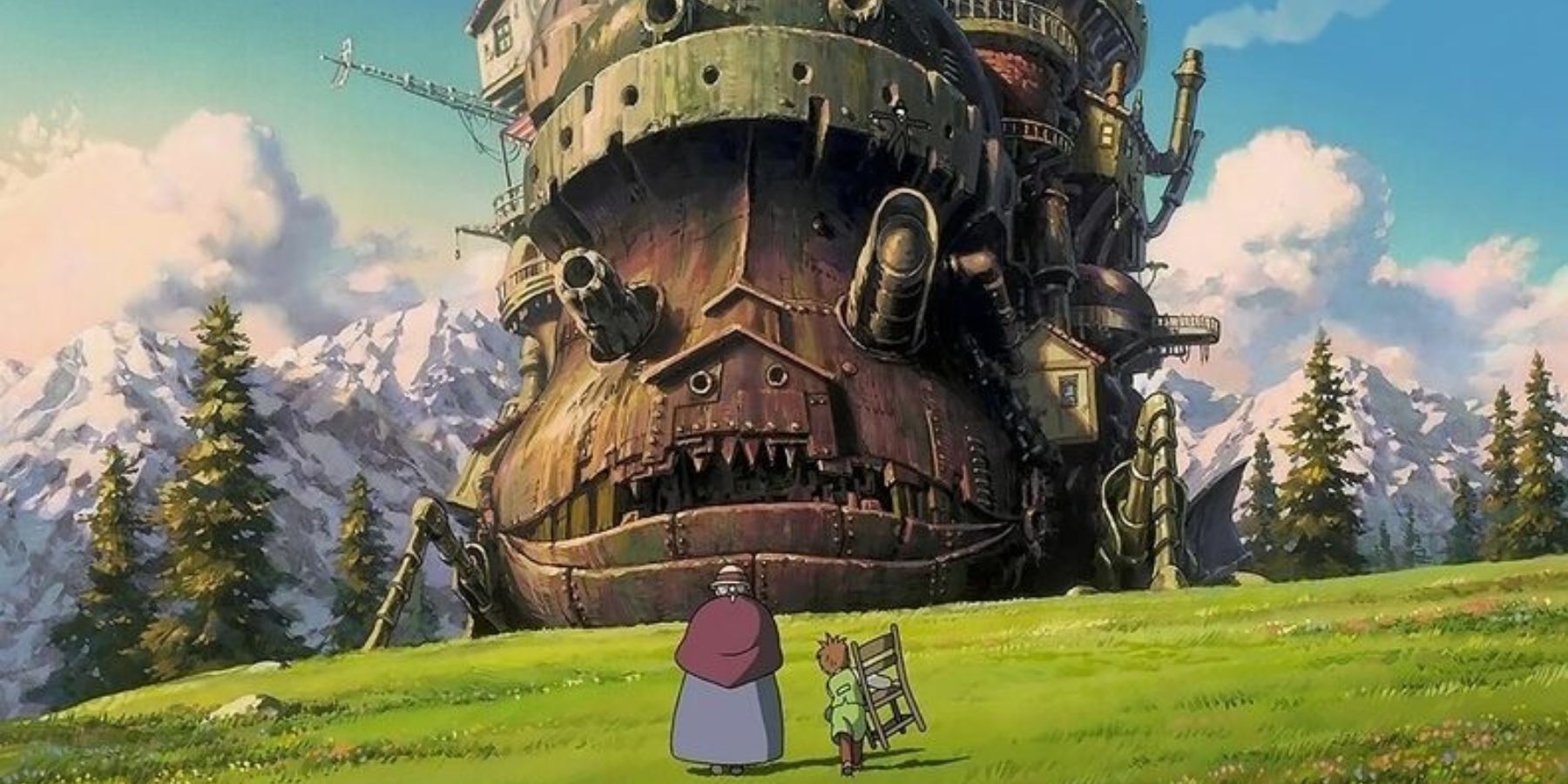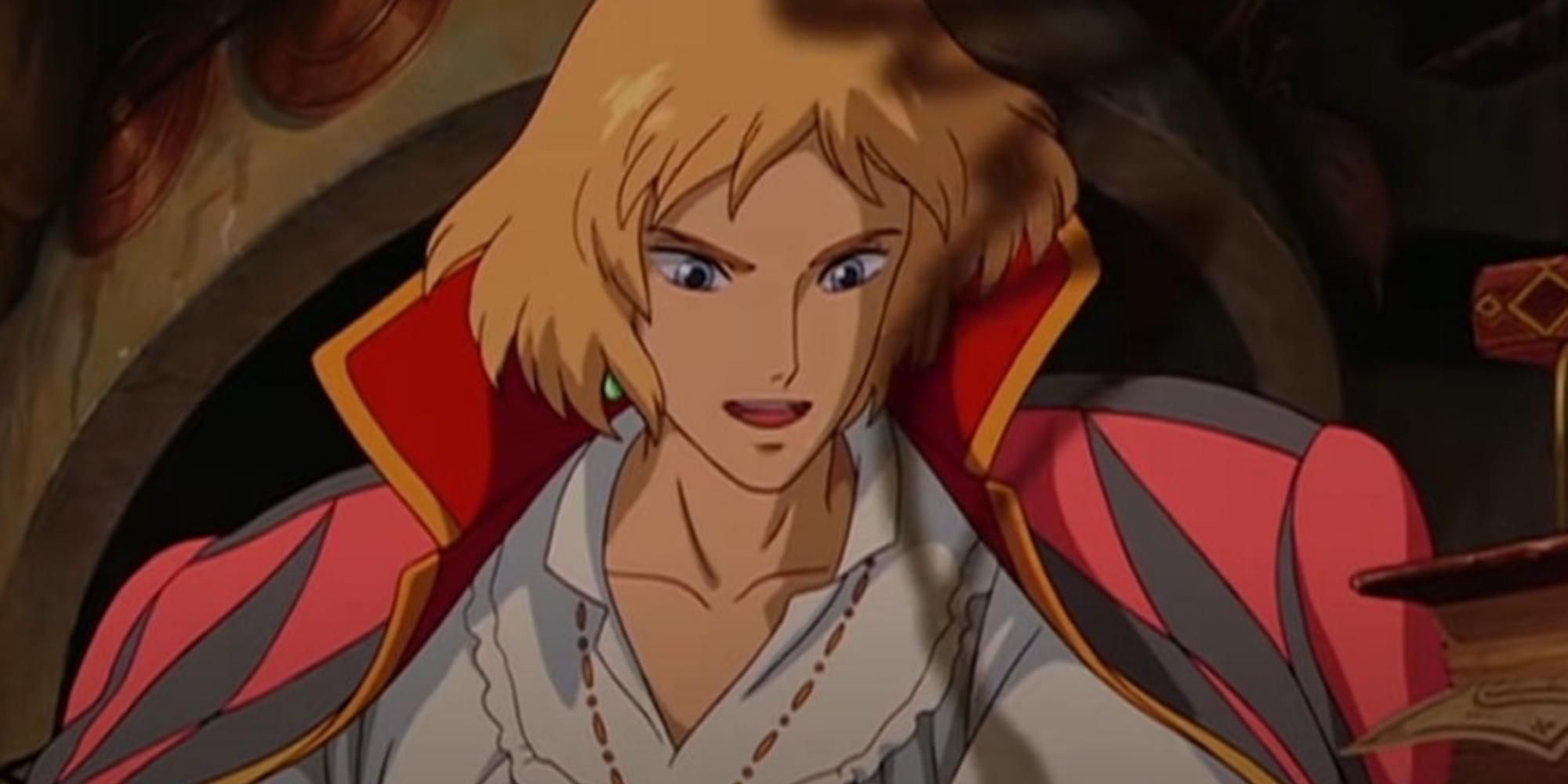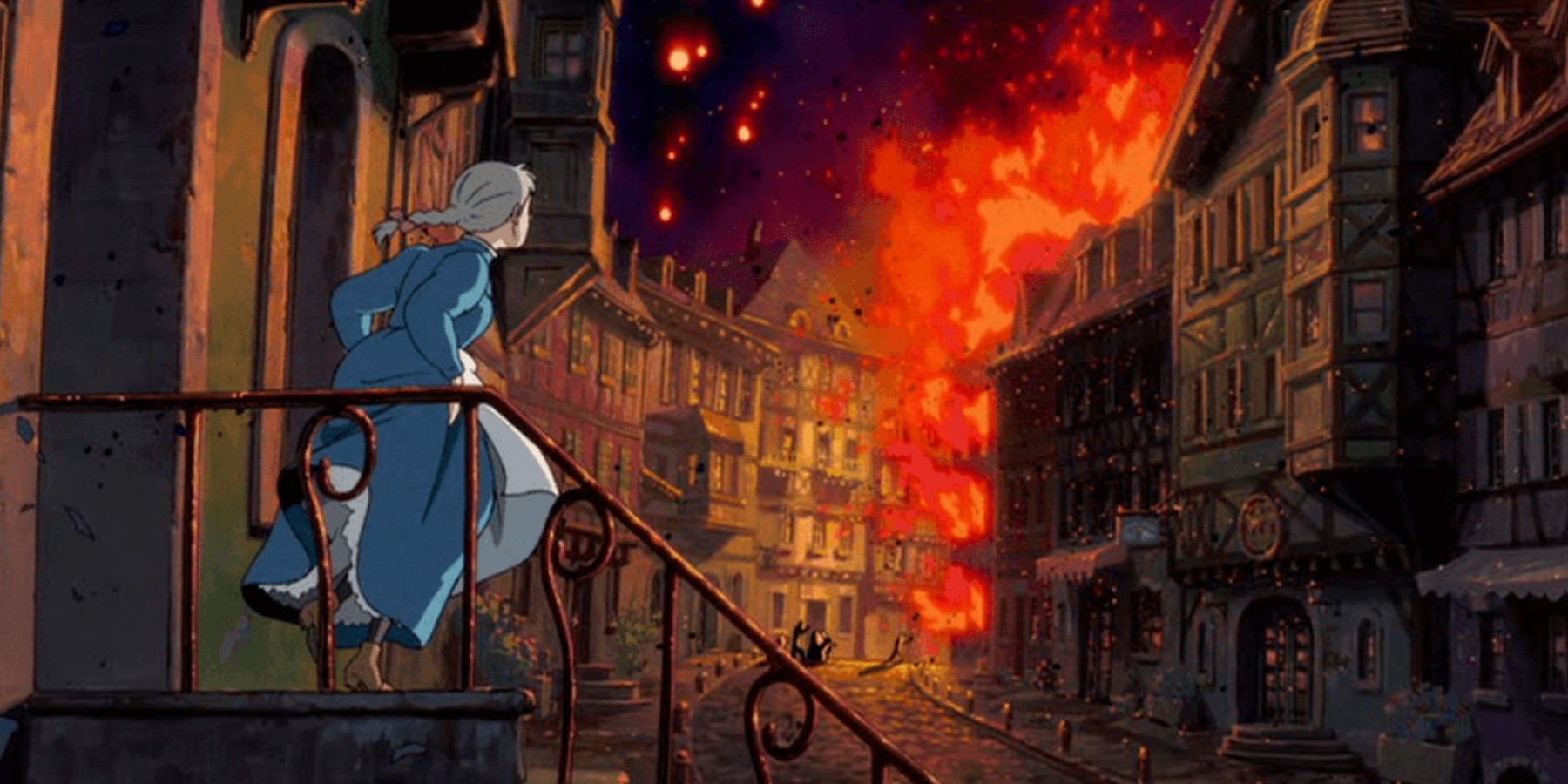Besides the clear anti-war message, the way war and disasters are portrayed in Howl’s Moving Castle also gives out another one: saving the environment and protecting nature. These values are a part of Japan's history, all of which are noticeable underlying themes in the works of Miyazaki at Studio Ghibli.
For obvious historical reasons, since World War 2, Japanese culture has become predominantly anti-war, which has been translated into anime and manga. Hayao Miyazaki himself was three years old when Tokyo was firebombed, and his father worked as the director of a company that made airplanes and parts for a fighter aircraft used in the World War. Therefore, he felt the destructive effects of war early in life.
Howl's Moving Castle: Not Just Another Anti-War Movie
Howl’s Moving Castle is not his first movie to address and deal with the war/anti-war theme. Anti-war messages are especially notable in Grave of the Fireflies, Porco Rosso, Princes Mononoke, Castle in the Sky, Nausicaa of the Valley of the Wind, and The Wind Rises. Also, Miyazaki creates complex characters, and Howl’s Moving Castle is not an exception to that, who are not pure evil. Studio Ghibli avoids portraying one-dimensional characters, and evil is an idea that promotes war, which is pointless and destructive. His protest was brilliantly and artistically expressed in Howl's Moving Castle, his next project, a film that focused on the victims of war.
In this adaptation of the homonymous novel by Diana Wynne Jones, with gorgeous animation and great storytelling, war is shown as being less fueled by justice, and more fueled by people with selfish agendas who detain power.
How many times does Diana Wynne Jones mention the terrifying specter of war in her 1986 novel Howl’s Moving Castle? The answer is — one in more than 400 pages. That is, the book only touches on the issue, and does not explicitly show Howl as being strongly anti-war as in the movie. Miyazaki, however, wished to depict the idea of love/romance under the fire of war.
Miyazaki's Stance Against War
Porco Rosso (1992) was influenced by the outbreak of the 1991 Gulf War. Created in the middle of the Iraq War, the narrative of Howl’s Moving Castle (2004) deals with a war that is raged in Europe, in the 19th century, which is usually referred to as the “age of patriotism”, when immense powers expanded their military power and territories in both Asia and Africa. Also, the firebombing in the anime film is a reminder of the bombing during World War 2. By drawing this parallel between one of the most unnecessary and savage events of the World War 2 and the War on Terror, miYazaki rebukes any presumptions of the righteousness of US retribution. Furthermore, when the audience gets to know that the Royal Palace is under protection in the film, which means that the bombs fall on the neighboring towns, the audience becomes aware of the political maneuver of the elite that rendered the public as collateral damage, thus discrediting any possible moral or practical justification of the war being raged.
It is fair to infer that Howl does not kill anyone, even in warfare. Considering that, in the novel, Howl loves living creatures, even the spiders in his castle, and considering the special request by the author of the original novel that Miyazaki would not change Howl’s personality, it can be stated that Howl’s non-killing tendency in the film is consistent with how he is in the original novel, but Miyazaki added some brushes of anti-war to his personality, making it more explicit than in the novel.
Marco Muller, the director of the Venice International Film Festival, regarded Howl’s Moving Castle as an “anti-war” message against the Iraq War, considering Miyazaki’s new film “possibly the strongest anti-war statement in the entire festival”.
And he was right. Howl’s Moving Castle is totally related to and influenced by Miyazaki’s anti-war philosophy and stance in the post-9/11 political context and the ensuing US-led War on Terror, especially the 2003 Iraq War. He expressed his strong opposition to the US-led War on Terror, especially US President George W. Bush.
Even though the scenario is European, with the references to World War 2, set in a magical and steampunk-like world, explicit references can be found to Iraq. The Witch of the Waste’s henchmen are black and globular, as though they had emerged from an oil field from Iraq, even if the general sense makes it clear that war can happen anywhere.
When he was awarded an Oscar for Spirited Away, Miyazaki made it public how much he loathed the US’s decision to invade Iraq. Miyazaki went further and said he was especially angry with the speech of George W. Bush, when he said: "Every nation, in every region, now has a decision to make. Either you are with us, or you are with the terrorists." He also used this rhetoric again and again to justify the War on Terror. Furthermore, Miyazaki did not attend the Ceremony of the Academy Award after the United States started the military attack on Iraq, which reiterated his anti-war stance.



